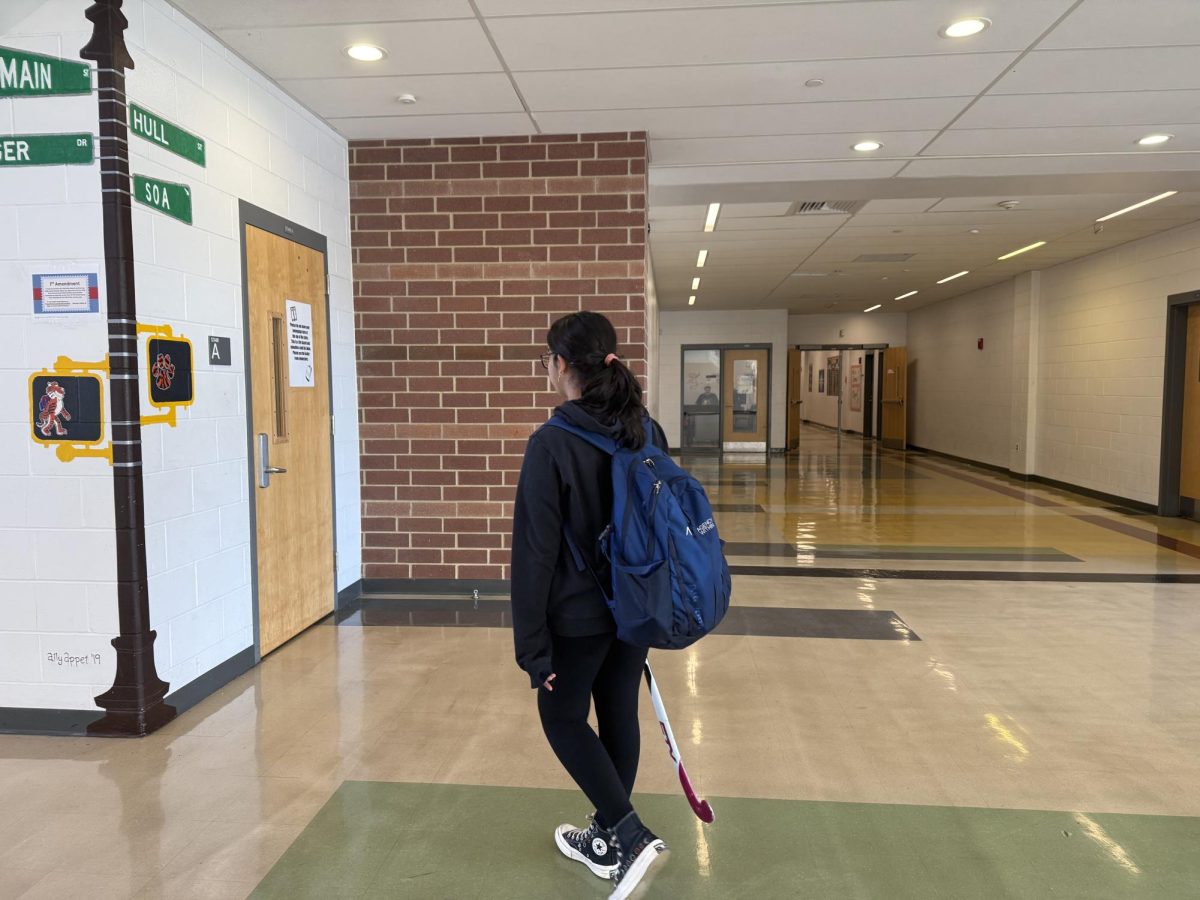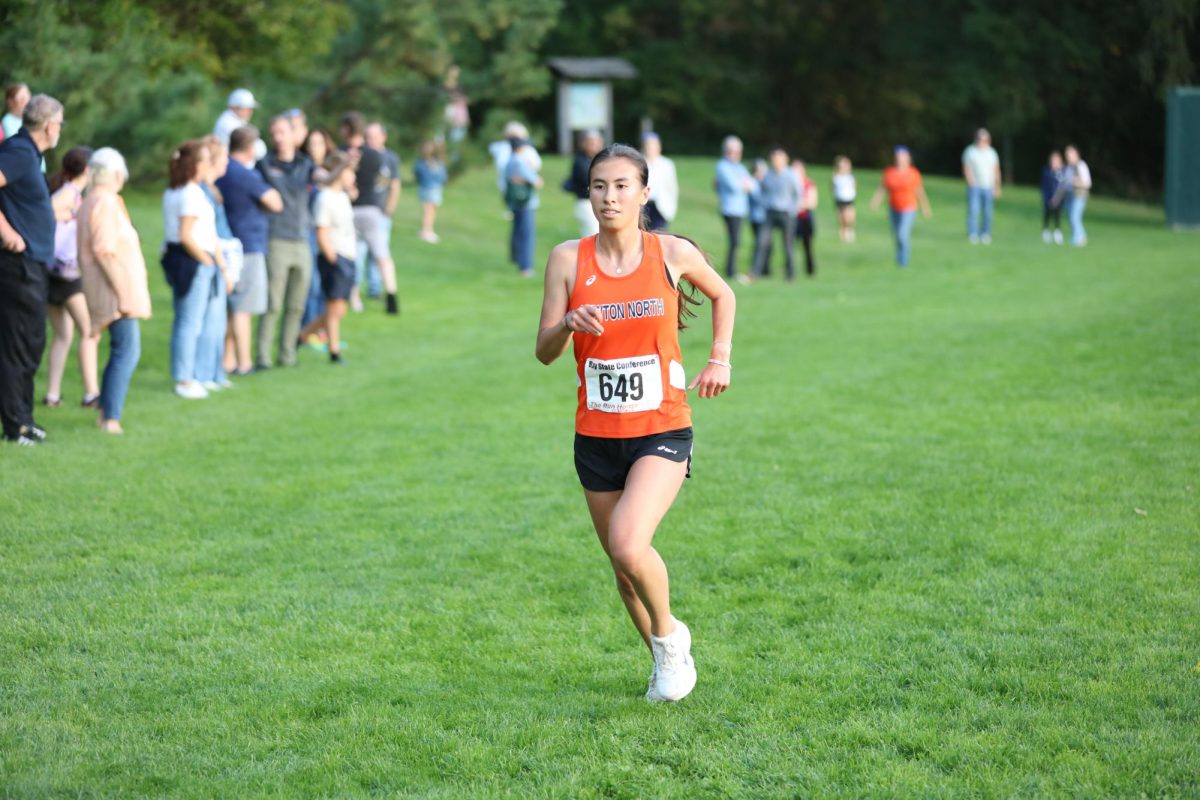by Julia Moss
According to a recent study, the number of vegetarian youth in the United States has increased 70 percent in the last few years due to increasing health awareness and compassion for animals.
Indeed, vegetarianism is a popular trend at this school, and it is not just because students are picky eaters or are trying to lose weight. While a great number of students have become vegetarian just this year, many others have not eaten meat since elementary school. However, both new and experienced vegetarians at this school have interesting stories behind their decision to stop eating meat.
Sophomores Luisa Donovan and Amelia Williams have become vegetarians in just the past few months.
Donovan said she became a vegetarian over February vacation. “I had given up meat for lent for a couple of years in a row, and this year I decided to just give up meat completely,” Donovan explained. “I thought, why not?”
Williams said she became vegan this summer, but then realized that “vegetarianism would be a better fit” for her, and switched to being vegetarian in February. “I became vegetarian for so many reasons,” she said. “For one thing, I really don’t like meat!”
Williams said she wants to help animals and stop the issue of “factory farming” by boycotting the meat industry. Additionally, she explained that eating a plant-based diet is better for your health, and this also influenced her decision.
Many other vegetarians at this school, however, have not eaten meat for as long as they can remember.
Freshmen Lucy Beizer and Nora Bell, and junior Evan Nitkan all became vegetarian at young ages. “I think being vegetarian is something to be proud of, and it’s really good for you. I’ve tried a lot of new foods that I don’t think I would have tried otherwise,” said Beizer, who became vegetarian at the age of seven.
Bell added, “At this point, eating meat seems so abnormal to me that I can’t imagine eating it. I can’t really compare it to not being a vegetarian, because I don’t remember what it was like not to be, but I feel pretty healthy.”
Nitkin said he became vegetarian in third grade. “In class, we studied Native American culture and learned how they had lived in harmony with nature,” he said. “I thought they’d had some pretty great ideas about life, so I decided to follow their lead of being kind to nature, and I became vegetarian.”
Nitkin added, “Generally, life is a pretty cool thing, and I enjoy not destroying it whenever possible.”
Junior Amelia Goldstein is now vegan, and has made the change gradually. “If you just stop eating animal products all of a sudden, you will probably have health problems and won’t stay vegan for very long,” Goldstein explained. Goldstein said she first stopped eating fish around the age of six, and eventually became vegetarian in fifth grade.
She remembered, “I was dissecting owl pellets and I was like, ‘How can an owl just eat another animal? That’s gross!’ Then, at dinner, I wondered the same thing about myself, and next thing I knew I was a vegetarian for the next six years!”
As time passed, Goldstein said she became more and more educated on the health and environmental benefits of eating vegan, organic and locally. Little by little, she stopped consuming animal products, and made her veganism official in September, she said.
Senior Katrina Barry was also a vegetarian, and then more recently she became vegan. “I became vegetarian because I don’t like killing animals,” she said. “I became vegan after I learned about the horrible torture that animals must endure to provide humans with milk and eggs. Egg-laying chickens live their whole lives without ever seeing sunlight. I can live without mistreating animals. I can live without animal products.”
Going even further, sophomore Tess Vassiliadis said, “I believe that all beings, animals, or humans have the right to live. As long as you have a heart that beats, it’s murder to take an innocent life. I’m aware many people disagree with me, but that’s why it’s my own choice and not theirs to be vegetarian.”
Both long-time vegetarians and those who are relatively new at vegetarianism have been influenced by movies such as Ingredients, Food Inc. and Forks Over Knives. Goldstein and sophomore Hannah Gallogly, who became a vegetarian two years ago, said that these movies played a role in their decisions to become vegetarian or vegan.
“In the movie Food Inc., just remember seeing images of thousands of chickens climbing on top of each other—some of them dead—inside of a gigantic, dark, musty coop. When they were packed into crates and sent off to get killed, it was even worse. I was so disturbed after the movie that I started only eating meat from local farms where I knew the animals had been treated humanely.
“A few weeks after, though,” Gallogly continued, “Every time I took a bite of meat, images of scared, mistreated animals from Food Inc. would pop up into my head, and one day, I decided I just couldn’t do it any more.”
Although being vegetarian has proved overall beneficial for most vegetarian students at this school, there are of course many challenges that vegetarian students must face.
Sophomore Lillia Baird said, “It was hard at first because I was, and still am, a picky eater and I didn’t like a lot of protein sources or refused to try them. Another challenge is that my house is mostly gluten-free because my brother has Celiac, so it can be difficult to find foods that meet both restrictions.”
Goldstein said that it is difficult for her that other students constantly question her or judge her about her veganism. “I don’t think I’ve gone more than a day without being asks ‘So what’s a normal meal like for you?’ Nobody thinks when they ask questions like that. People generally do not have one ‘normal meal.’ I don’t know why vegans would be any different. And what I eat is definitely not the same as what every vegan eats. I’m not a picky eater; I don’t live off of salad and tofu, contrary to popular belief.”
Despite this problem, Goldstein said, “I love being vegan. A lot of vegans and vegetarians are like me in the sense that we see the world in a different way. I could go on for hours about why going vegan is the right thing to do and why eating vegan and organic will help your health, the environment, your attitude and the economy.”
The experiences of vegetarian and vegan students at this school evidence the many facets of the trend. Prior to deciding whether or when to become vegetarian or vegan, numerous factors, such as the ones by the students at this school have recounted, should all be taken into consideration.









































